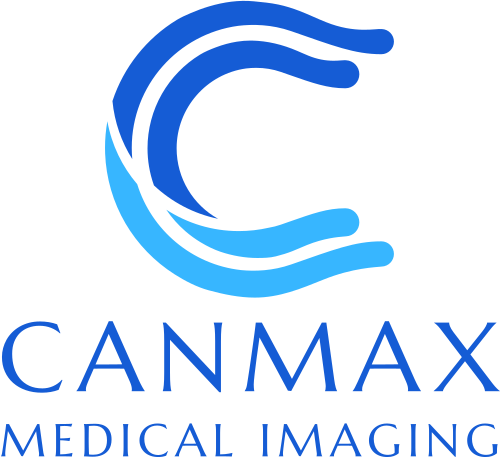As medical technology advances, more people are choosing proactive, preventive care. Among the most powerful tools available is full body imaging, which gives healthcare providers a detailed look at your body’s internal systems—helping detect disease early, monitor ongoing conditions, and guide treatment decisions.
In this article, we’ll explain what full body imaging at Canmax involves, what you can expect during your appointment, and break down the costs using our current pricing.
What Is Full Body Imaging (Full Body MRI)?
A full body MRI (magnetic resonance imaging) is a non-invasive screening examination that images multiple organ systems and structures of the body in one session. Instead of targeting a single region (e.g. brain, knee, spine), the scan aims to survey:
-
Brain and spinal cord
-
Vascular structures and cardiovascular elements
-
Major abdominal organs (liver, kidneys, pancreas, etc.)
-
Musculoskeletal and joint regions
-
Soft tissues and potential lesions, masses, or abnormalities
Unlike CT scans or X-rays, MRI does not use ionizing radiation. Instead, it employs magnetic fields and radiofrequency pulses to generate highly detailed images.
At Canmax, our goal is to offer full body imaging with fast scheduling—appointments are typically available within 48 hours of booking.
Why Consider Full Body Imaging?
There are several compelling reasons why patients choose full body imaging:
-
Early detection: Identify asymptomatic lesions, tumors, vascular anomalies, or degenerative conditions before they advance.
-
Comprehensive view: Instead of ordering multiple separate scans, you get one complete picture.
-
Non-radiative: No exposure to ionizing radiation (unlike CT or X-ray).
-
Peace of mind / risk monitoring: Especially useful if there’s a family history of cancer, vascular disease, or neurological conditions.
-
Baseline imaging: Can be used as a reference point for future scans to monitor changes over time.
Cost Breakdown at Canmax
Canmax publishes its pricing clearly and transparently on its website. All amounts are in Canadian Dollars (CAD), with HST (Harmonized Sales Tax) added separately.
Here is the current breakdown:
|
Imaging Service |
Price (CAD) |
Notes / HST |
|---|---|---|
|
Full Body MRI |
$2,750 + HST |
This covers the all-body scan as offered by Canmax. |
|
MRI without contrast |
$700 + HST |
A more focused scan with no contrast agent. |
|
MRI with & without contrast |
$835 + HST |
For scans requiring both contrast and non-contrast sequences. |
Important notes:
-
These prices apply to standard MRI services. The full body MRI is a more extensive, premium service.
-
Because all prices are listed “+ HST,” your final cost will include an additional percentage for tax.
-
In some cases, Canmax may offer promotional discounts (e.g. $200 off a full body MRI) depending on timing and marketing campaigns.
-
The pricing is for the imaging itself; any related services (consultations, follow-up physician visits, analysis beyond standard reporting) may incur additional fees from external providers.
Sample Scenarios & Cost Comparisons
Standard Full Body MRI
You book the full body scan at Canmax. The cost is $2,750 CAD + HST.
With HST (for example, assuming 13% in Ontario), this becomes about $3,108 CAD total (depending on local tax rates).
More Focused MRI
Suppose a physician requested only a brain MRI with contrast. You’d pay $835 CAD + HST.
No Contrast MRI for Musculoskeletal Issue
If contrast is not required, the price is $700 CAD + HST.
Comparatively, in some regions in Canada, private MRI pricing can exceed $1,300 CAD or more for certain specialized scans—making the Canmax full body MRI competitive given the breadth of coverage.
Also, Canmax emphasizes that appointment availability is fast (within ~48 hours), which may offset higher costs by reducing delays in diagnosis.
Is Full Body Imaging Worth the Cost?
The value of a full body MRI depends on your individual situation. Here are some considerations:
-
If you have no symptoms or risk factors, a full body scan is more of a wellness tool and be used as a preventative measure.
-
For those with family history of cancer, vascular disease, neurological conditions, or prior medical concerns, the scan offers a chance to catch early signs.
-
The cost is significant, but if a scan identifies an early lesion or issue, the future medical cost savings (less invasive treatment, better outcomes) can outweigh the upfront expense.
-
In settings where wait times for public imaging are long, paying privately for timely diagnostics can be justified by time saved and health peace of mind.
How Patients Can Prepare & What to Expect
-
Bring any referrals, relevant medical history, or prior imaging to your appointment.
-
Confirm whether contrast is needed (your physician will typically specify).
-
The scan session can take 45 minutes to 1.5 hours (or more) depending on the scope.
-
After scanning, the images are processed and interpreted by radiologists; results are forwarded to you and your physician.
-
Canmax aims to deliver fast scheduling and reporting, with appointments typically within 48 hours.





